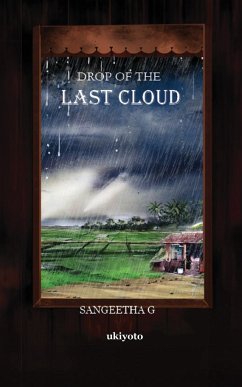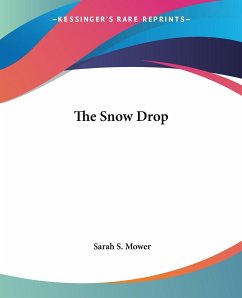""In many ways, Gomathi too was a water drop - a drop that had lost its home and was travelling through unknown paths. In her case, the home was the last cloud - the last cloud of a matrilineal joint family, which had held all her daughters together..." When the matrilineal system that prevailed in Nair community in Kerala was abolished almost a century back, women were caught in a state of flux and remained confused all their lives about what to retain and what not to, what was proper and what not. Gomathi was not an exception. In many ways, Gomathi is the quintessential woman of all times - women who live for the validation and acceptance of 'others', ignoring themselves. Will she ever realise the wastefulness of her existence? Will she do anything to bring about a change and claim back her own self?" "Sangeetha G's Drop of The Last Cloud is a wonderful coming of age story. There is a beautiful simplicity and earnestness with which the protagonist Gomathi's life is explored as Indian society transitions from a matrilineal system to a patriarchy - a compelling reminder of how women's dilemmas a century ago have great relevance even today". --- Shashi Tharoor, Former diplomat and minister, author and member of Indian Parliament "Drop of the Last Cloud captures a period of turmoil in the history of Travancore, with the devastating floods of 1924 in the opening chapter serving as an allegorical backdrop. The matrilineal system had collapsed like the ancient houses in the deluge, giving way to unitary families. The novel examines, through the story of a woman from the feudal class, the impact of this change in women's lives, their existential dilemmas and the generational transformation in terms of choices and values brought about by the rethinking that characterised Kerala's Renaissance". -- K Satchidanandan, Bilingual poet, playwright, critic and former secretary of Sahitya Akademi About the Author Sangeetha G, a senior business journalist, has been part of the mainstream media in India for more than 20 years. In these years, she has worked with visual media, news agencies and newspapers. Her flash fiction and short stories have been published by Sky Island Journal, Kitaab International, Indian Review, Academy of the Heart and Mind, Down in the Dirt, Storizen, The Story Cabinet and Borderless Journal. Her work 'Burning flesh' won the first prize in Himalayan Writing Retreat flash fiction contest 2022.
Bitte wählen Sie Ihr Anliegen aus.
Rechnungen
Retourenschein anfordern
Bestellstatus
Storno









